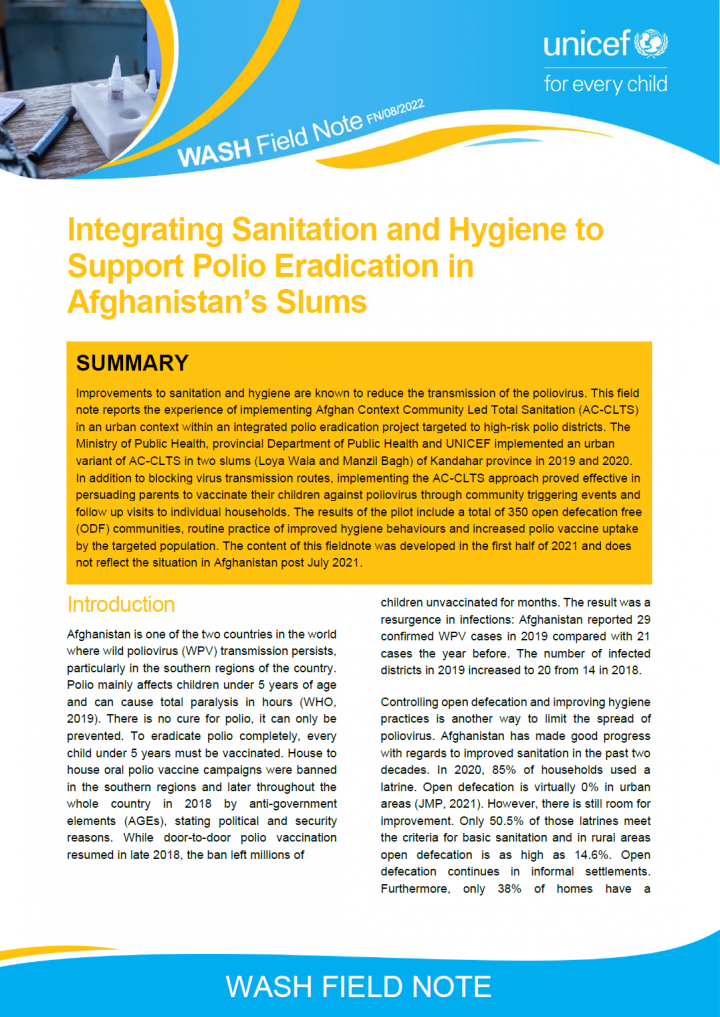Integrating Sanitation and Hygiene to Support Polio Eradication in Afghanistan’s Slums
UNICEF (2022)

Published in: 2022
Pages: 7
Publisher:
UNICEF Regional Office South Asia
Author:
UNICEF
Uploaded by:
SuSanA Admin
Partner profile:
common upload
1561 Views
38 Downloads
Improvements to sanitation and hygiene are known to reduce the transmission of the poliovirus. This field note reports the experience of implementing Afghan Context Community Led Total Sanitation (AC-CLTS) in an urban context within an integrated polio eradication project targeted to high-risk polio districts. The Ministry of Public Health, provincial Department of Public Health and UNICEF implemented an urban variant of AC-CLTS in two slums (Loya Wala and Manzil Bagh) of Kandahar province in 2019 and 2020. In addition to blocking virus transmission routes, implementing the AC-CLTS approach proved effective in persuading parents to vaccinate their children against poliovirus through community triggering events and follow up visits to individual households. The results of the pilot include a total of 350 open defecation free (ODF) communities, routine practice of improved hygiene behaviours and increased polio vaccine uptake by the targeted population. The content of this fieldnote was developed in the first half of 2021 and does not reflect the situation in Afghanistan post July 2021.
Bibliographic information
UNICEF (2022). Integrating Sanitation and Hygiene to Support Polio Eradication in Afghanistan’s Slums. UNICEF Regional Office South Asia
Filter tags
English Europe & Central Asia














